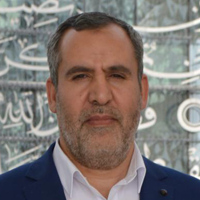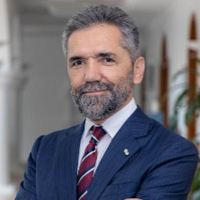Negating or Confirming Parentage from Jurisprudential, Societal, and Legal Perspectives
Conference Overview
The conference aims to discuss the legitimacy of the contemporary state conducting genetic fingerprinting for newborns immediately after birth and before recording their lineage in official records. It also explores the validity of negating or confirming parentage using genetic fingerprinting when a valid marriage contract is present, tracking legal developments and judicial rulings, and understanding its impact on the structure of contemporary societies.
Recently, advanced methods have allowed the examination of genetic material and its formation process and timing, resulting in what is medically known as genetic fingerprinting. Initially used in the field of medicine and the study of genetic diseases, these methods have quickly entered the realm of forensic medicine.
Legal professionals started using genetic fingerprinting in the field of criminal investigation. At the same time, scholars have discussed the possibility of utilizing this new technology as legitimate evidence of lineage, given the importance of understanding parentage as a necessity to safeguard individuals and society as a whole.
Chair’s Message
The implications of proving lineage carry significant jurisprudential, societal, and legal effects. From the jurisprudential perspective, lineage fundamentally relates to various aspects such as inheritance, guardianship, prohibition of bequest, bearing Diya (blood money), custody, etc., in addition to rulings related to marriage, such as the obligation of financial support, prohibition of certain marriages, and other legal stipulations.
From a societal perspective, proving lineage contributes to family stability, which guarantees the preservation of a cohesive social fabric made up of customs and traditions, ethical and moral belonging, and cultural dimensions.
Given the significance of such aspects and the importance of understanding the legal dimension and its development, this conference aims to address questions related to contemporary state practices in genetic fingerprinting for newborns, particularly in situations where a legally recognized marriage contract is present.
Dean’s Message
Understanding parentage is a religious objective and a necessity in preserving progeny and safeguarding society. In addition to the impact of unknown lineage on the dissolution of paternal and filial bonds, psychology has proven the adverse psychological effects resulting from unawareness of one's lineage.
Islamic jurisprudence has established multiple means to prove lineage. However, with technological advancements, a modern method emerged that facilitates the identification of genetic materials, their formation process, and their timing, known as "genetic fingerprinting." This method has been utilized in forensic medicine, criminal investigations, civil matters, and beyond. Hence, the significance of this conference lies in assessing the latest developments related to genetic fingerprinting and assessing its jurisprudential, societal, and legal ramifications.
About
About The College of Islamic Studies
HBKU’s College of Islamic Studies (CIS) was founded to become a beacon for contemporary Islamic scholarship and thought, and a platform for meaningful intellectual and cultural dialogue on Islam and Muslims. Through its nine academic offerings and research centers, the college seeks to address some of the most pressing questions facing Muslim communities today, both locally and globally. Through its offerings, the college strives to advance a better understanding of Islam and its social dimensions and to produce graduates who can contribute and excel in a rapidly changing world.
About Hamad Bin Khalifa University
Hamad Bin Khalifa University (HBKU), a member of the Qatar Foundation for Education, Science, and Community Development (QF), was founded in 2010 to continue fulfilling QF's vision of unlocking human potential. HBKU is a homegrown research and graduate studies University that acts as a catalyst for positive transformation in Qatar and the region while having a global impact.
Located within Education City, HBKU seeks to provide unparalleled opportunities where inquiry and discovery are integral to teaching and learning at all levels utilizing a multidisciplinary approach across all focus areas.
HBKU is committed to actively contribute to achieving the Qatar National Vision 2030 by building and cultivating human capacity through an enriching academic experience and an innovative research ecosystem. Through applying creativity to knowledge, students will have the opportunity to discover innovative solutions that are locally relevant and have a global impact.
At Hamad Bin Khalifa University – our students, faculty, staff, partners, and leadership – all share a common belief in the power of higher education and research to make a positive impact in the development of nations.
More information at www.hbku.edu.qa
About Education City
Our flagship initiative is a campus of more than 12 square kilometers that hosts branch campuses of some of the world's leading educational institutes, a homegrown university, and other research, scholastic, and community centers. Together, these institutes make Education City a unique model of academic and research excellence, pioneering a new approach to multidisciplinary, global education and enabling breakthroughs that benefit Qatar and the rest of the world.
More information at https://www.qf.org.qa/education/education-city
About Qatar
Qatar has been an independent sovereign state since 1971. Qatar comprises an 11,500 sq. km peninsula extending northwards into the Arabian Gulf. It has 563 km of uninterrupted coastline. The country's population stands at 2.69 million and its capital city is Doha.
Local time is GMT/ UCT + 3 hours. There are no daylight savings adjustments.
Qatar has a desert climate with year-round sunshine, very hot summers, and mild winters. Mean monthly temperatures range from 17°C in January to 36°C in July, sometimes reaching highs of 45°C+ during the summer. Rain is infrequent, falling in brief showers mainly in winter.
Capital: Doha
Population: 2.68 million
Area: 11,500 sq. km
Language: Arabic
Religion: Islam
Currency: Qatari Riyal
Power Connection: The power plugs and sockets are of type D and G. The standard voltage is 240 V and the standard frequency is 50 Hz.
Transportation
Karwa is the national taxi and limousine service. To book a taxi call +974 800 8294. You can pay by cash, bank card or mobile payment.
Karwa taxis can be ordered or pre-booked via the Karwa Taxi app (available on iOS and Android), or hailed from the street.
UBER taxi service is also active in Qatar.
You can use your international driving license for seven consecutive days.
Metro
The metro system has three lines (Gold, Green and Red) covering 37 stations. Trains run every 3 minutes and staff are available at every station to assist you during your journey.
You can buy a travel card at stations and then save time by topping up online or on the Qatar Rail app (iOS and Android).
All stations have elevators and all train carriages provide space for wheelchair users and pushchairs, as well as guide dog allowances. You can check the Qatar Rail website before you travel.
Free metrolink buses run useful routes within 2 - 5 km of stations.
If you are traveling to central Doha, you can take the metro to one of these stations, which are conveniently located to access the Corniche area. You can change lines at Al Bidda (Red and Green) stations and Msheireb (Red, Green and Gold)
More information at https://www.qr.com.qa/home
Currency Exchange (March 2023)
Minor Unit: 1/100 = Dirham
- 1.00 EUR = 3.88 QAR
- 1.00 USD = 3.64 QAR
- 1.00 GBP = 4.40 QAR
More information at https://www.visitqatar.qa
Submission
Objectives of the Conference
- Discussing the legitimacy of contemporary states conducting genetic fingerprinting for newborns immediately after birth and before their lineage is recorded in official registers.
- Examining the legitimacy of confirming or negating parentage with genetic fingerprinting when a valid marriage contract is present.
- Considering legal developments and judicial rulings for confirming or negating parentage through genetic fingerprinting.
- Studying the impact of confirming or negating parentage on the structure of contemporary societies.
Topics
This conference is set to cover a wide range of topics on the role of genetic fingerprinting in modern-day societies, including but not limited to:
First: The Jurisprudential Aspect
- Is it permissible to conduct genetic fingerprinting immediately after birth and before the registration of the newborn?
- Can paternity be negated or confirmed through genetic fingerprinting with a proven valid marriage contract? And what are the jurisprudential implications of this?
- How is paternity negated in cases of doubtful copulation or assault for someone who was a wife under a valid marriage?
- Does the occurrence of li’an (mutual cursing) between spouses definitively negate paternity?
Second: The Legal Aspect
- What role does genetic fingerprinting play in the negation or confirmation of paternity in contemporary laws? And what are its major implications on the civil life of married couples and their newborns?
- What are the most notable judicial applications related to genetic fingerprinting?
- What are the desired amendments to existing laws?
Third: The Societal Aspect
- What is the role of genetic fingerprinting in preserving the societal structure in contemporary societies?
- To what extent will society be affected by employing genetic fingerprinting in the negation of paternity and attributing children to their fathers?
Participants are encouraged to focus on one aspect according to their specialization.
Abstract Submission Guidelines
- Priority is given to topics related to the Qatari or Gulf context.
- Abstracts and presentations are to be provided in Arabic only.
- The maximum number of words for research abstracts is 500 words.
- Presentations should be in an oral format with PowerPoint slides.
Abstract submission link







